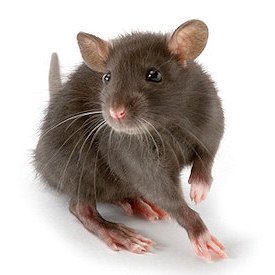Rats can make a variety of sounds, depending on the situation and the individual rat. Some common sounds that rats make include:
We at rapid Rodent Removal want you to know
Whistling or chirping: Rats may make high-pitched whistling or chirping sounds when they are happy or excited.
Growling or grunting: Rats may growl or grunt when they feel threatened or aggressive.
Screaming: Rats can make loud, high-pitched screams when they are in extreme distress or pain.
Scratching: Rats may make scratching sounds as they move around, particularly when they are running or climbing.
Chewing: Rats may make chewing sounds as they gnaw on objects, which can be loud enough to be heard through walls or ceilings.
Squeaking: Rats may squeak when they are startled, annoyed, or in distress.
It is important to note that rats are social animals and they communicate with each other through vocalizations, body language, and other forms of communication. If you hear strange noises coming from your walls or attic, it is possible that rats or other pests may be present.
Understanding Rat Sounds
Rats are fascinating creatures with a complex range of vocalizations. Have you ever wondered what those rat sounds mean? This article will explore different types of rat sounds, their purposes, and their significance in relation to rat infestations and human health.
Types of Rat Sounds
Rats emit various sounds for different reasons. Here are some common rat sounds you may encounter:
Squeaks and Chirps
These are the most familiar rat sounds. Rats emit high-pitched squeaks and chirps to communicate with one another. They can convey various messages, from warnings to friendly greetings. Sometimes, these sounds can be ultrasonic, meaning they are beyond the range of human hearing.
Hisses and Growls
When rats feel threatened, they may hiss or growl. These sounds serve as a warning to other rats and potential predators to stay away.
Chattering and Grinding
Rats may also chatter or grind their teeth, a behavior known as bruxism. This can indicate contentment, stress, or a way to maintain their teeth, which continuously grow throughout their lives.
Why Rats Make Sounds
There are several reasons why rats make sounds:
Communication
Rats are social animals that use vocalizations to communicate with each other. They convey emotions, intentions, and information about their surroundings through their sounds.
Fear or Stress
When rats are scared or stressed, they may emit various sounds to express their feelings or warn other rats about potential dangers.
Pain or Discomfort
Like humans, rats can vocalize when they're in pain or experiencing discomfort. These sounds may be similar to squeaks or whimpers.
Mating Rituals
Rats also use vocalizations during mating rituals. Males may serenade females with ultrasonic songs, while females may emit specific calls to signal their receptiveness.
Detecting Rat Infestations Through Sounds
Rat sounds can be an early warning sign of a potential infestation in your home or business. Here are some sounds that may indicate the presence of rats:
Scratching and Gnawing
Rats are notorious for their gnawing and scratching habits. If you hear these sounds in your walls, attic, or behind appliances, it could be a sign that rats are present. They chew and gnaw on various materials to maintain their teeth and create pathways.
Rustling and Scampering
Rats are nocturnal animals, so they are most active during the night. If you hear rustling or scampering noises in your home after dark, it could indicate a rat infestation. These sounds are typically caused by rats moving around, foraging for food, or building nests.
Rat Sounds and Human Health
Rat infestations can have significant impacts on human health, which is why it's essential to address them promptly.
Zoonotic Diseases
Rats are known carriers of various diseases that can be transmitted to humans, such as leptospirosis, hantavirus, and rat-bite fever. Their urine, feces, and saliva can contaminate surfaces and food, posing a risk to human health.
Allergies
Some people may develop allergies to rat dander, urine, or droppings. Exposure to these allergens can trigger allergic reactions, such as sneezing, itching, and difficulty breathing.
Psychological Impacts
The presence of rats and their sounds can cause anxiety, stress, and sleep disturbances for some people. Prolonged exposure to rat infestations may negatively impact mental health and overall well-being.
Dealing with Rat Infestations
If you suspect a rat infestation due to the presence of rat sounds or other signs, it's crucial to take action. Here are some steps you can take:
Prevention Methods
To prevent rat infestations, make sure to seal any cracks and holes in your home, keep food stored in airtight containers, and maintain a clean environment to discourage rats from finding food and shelter.
Removal Techniques
If you already have a rat infestation, you can use traps or baits to capture and remove the rodents. Remember to follow the instructions and guidelines carefully to ensure the safe and humane handling of rats.
Professional Help
If your rat problem persists or becomes unmanageable, it's advisable to seek professional help. Pest control experts can assess the situation, provide tailored solutions, and ensure the safe and effective removal of rats from your property.
Conclusion
Understanding rat sounds and their purposes can help you detect and address potential infestations in your home or business. By recognizing the different types of rat sounds and their implications, you can take the necessary steps to protect your health and maintain a rat-free environment.
Frequently Asked Questions (FAQs)
1. Can humans hear all rat sounds?
No, humans cannot hear all rat sounds. Rats can produce ultrasonic vocalizations that are beyond the range of human hearing. These sounds are used for communication and mating rituals.
2. Are rat sounds harmful to humans?
Rat sounds themselves are not harmful, but they can indicate a rat infestation, which can pose health risks. Rats are known to carry diseases and allergens, which can affect humans.
3. How can I tell if a rat sound indicates an infestation?
If you hear consistent scratching, gnawing, rustling, or scampering sounds, especially at night, it could indicate a rat infestation. Additionally, you may notice droppings, chewed materials, or nests.
4. How can I prevent rat infestations?
Prevent rat infestations by sealing cracks and holes in your home, storing food in airtight containers, and maintaining a clean environment to discourage rats from finding food and shelter
Rats make noises like squeaks, chirps, and hisses sound. Often, squeaks or hisses signify that a rat is afraid or in pain. Almost all rat vocalizations cannot be hear with your ear, because they are ultrasonic. Roof Rat are life long chewers as well, so some of the sounds you hear are rats gnawing and chewing. If you hear these sounds in your attic call Rapid Rodent Removal. Dont let this scare you into some sort of musophobia fit.

